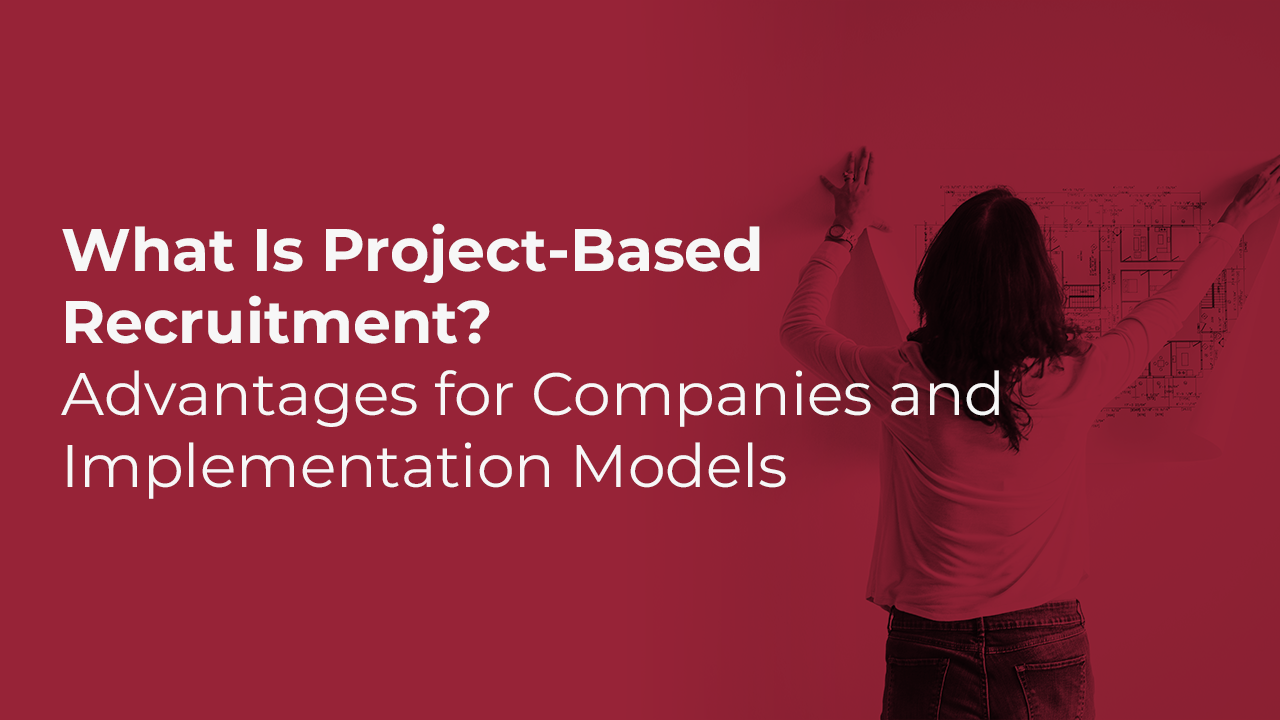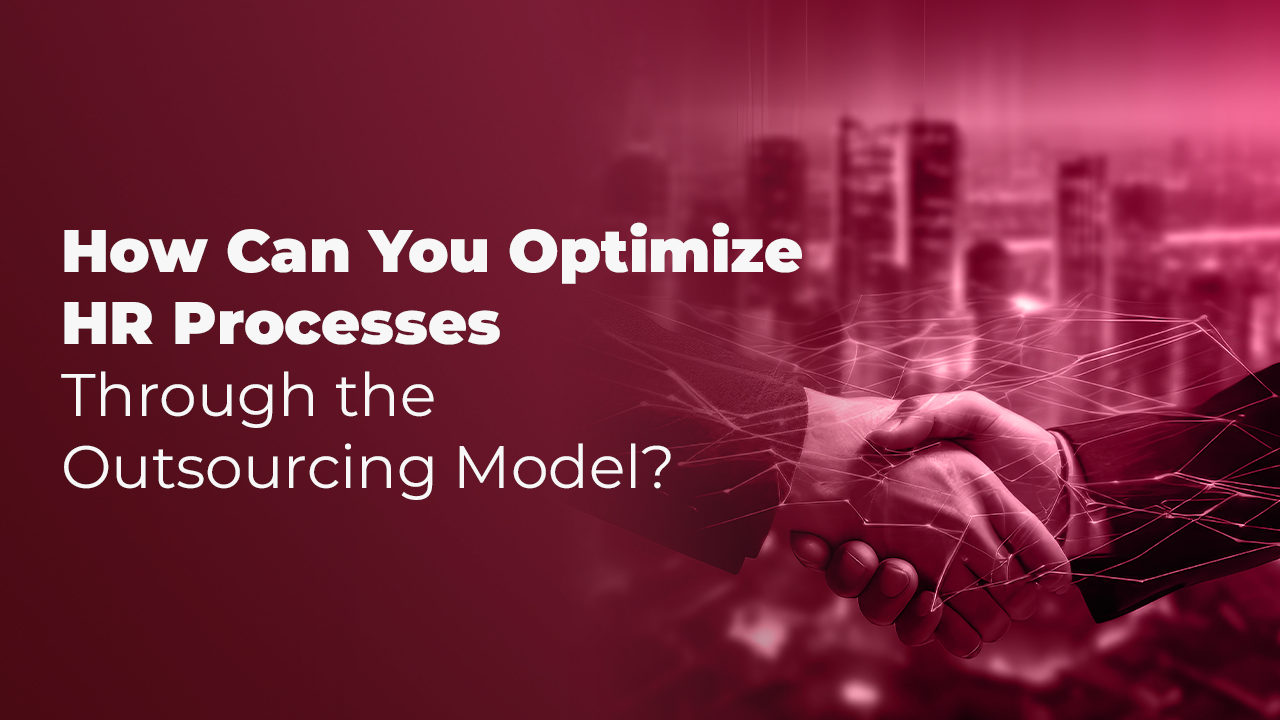What Is Project-Based Recruitment? Advantages for Companies and Implementation Models
In today’s business world, flexibility, speed, and expertise are no longer luxuries—they are essential for sustainable success. Especially for companies aiming for growth or looking to optimize their workforce based on seasonal or project-specific needs, project-based recruitment models are becoming increasingly attractive.
But what exactly is project-based recruitment? When is it the right choice? What are its benefits, and how can HR consultancy services support this process? In this article, you’ll find strategic and practical answers to these questions.
What Is Project-Based Recruitment?
Project-based recruitment is a hiring model that enables companies to meet short- or medium-term workforce needs for temporary, seasonal, or role-specific assignments. The individual hired under this model typically works for the duration of the project, and their employment concludes once the project is completed.
Common use cases include:
- Launching a new product
- Seasonal sales campaigns
- Organizational transformation projects (e.g., ERP implementations)
- IT or engineering-related system development
- Restructuring payroll, accounting, or HR processes
In many of these scenarios, an HR solutions partner steps in. Instead of hiring directly, the company collaborates with a recruitment or HR consultancy firm to bring in the needed talent through outsourcing or project-based staffing.
Advantages of Project-Based Recruitment for Companies
- Time Efficiency
Project-based hiring accelerates the recruitment process. Consultancy firms handle job postings, screening, interview coordination, and more—allowing you to meet only the most suitable candidates. - Budget Flexibility
With no long-term commitment to benefits like insurance, annual leave, or severance, your overall HR costs are minimized or managed by your HR partner—providing a clear budgeting advantage. - Access to Specialized Talent
Sometimes, the required technical skills for a project don’t exist in-house or would take too long to find. A recruitment consultancy quickly identifies and engages the right professionals in the market. - Flexible Workforce Management
Scale your team up or down based on project needs. This flexibility significantly boosts organizational efficiency. - Risk Mitigation
Concerns about probation periods or long-term retention are reduced. Additionally, contracts with consulting firms clearly outline legal responsibilities—minimizing employer risk.
How Does the Project-Based Recruitment Process Work?
- Needs Assessment: The company defines the project scope, responsibilities, duration, and required qualifications.
- Partnering with a Recruitment Firm: The company selects a qualified HR consultancy and shares a detailed brief.
- Talent Sourcing: The consultancy uses its database and market knowledge to identify suitable candidates.
- Interviews & Selection: Interviews are conducted with shortlisted candidates.
- Contracting & Placement: A project-specific agreement is made between the candidate and the company. Legal and operational aspects are handled by the consultancy.
- Project Monitoring: The consultancy tracks the candidate’s performance and integration throughout the assignment.
In many cases, the hired professional is not placed on the company’s payroll. Instead, the HR consultancy handles all legal and payroll responsibilities—allowing the company to focus solely on project outcomes.
Which Industries Benefit Most from Project-Based Recruitment?
- FMCG: Product launches, field sales campaigns
- IT & Tech: Software development, systems integration, data analytics projects
- Finance & Banking: Regulatory transitions, short-term reporting needs
- Logistics: Seasonal distribution planning, warehouse optimization
- Human Resources: Implementation of performance management systems, training initiatives
The Added Value of Working with HR Consultancy Firms
A skilled recruitment firm does more than just find a good match. It manages the entire process—from legal compliance to strategic alignment—on your behalf.
Why partner with an external HR consultancy?
- Market Knowledge: Get insights into talent availability, salary trends, and sector-specific dynamics.
- Faster Hiring: Access to pre-screened candidates through proprietary databases.
- Reduced Hiring Risk: Avoid costly mis-hires.
- Operational Convenience: Avoid the administrative burden of payroll, contracts, and compliance.
Firms like AVD Consultancy are committed to delivering maximum value across time, cost, and talent quality—tailoring each recruitment solution to your project’s specific needs.
Project-Based vs. Permanent Recruitment: Key Differences
| Criteria | Permanent Recruitment | Project-Based Recruitment |
| Duration | Indefinite | Fixed (e.g., 3–6–12 months) |
| Payroll | Company payroll | Consultancy firm payroll (optional) |
| Objective | Long-term employment | Successful project completion |
| Time to Hire | 6–8 weeks (avg.) | 1–3 weeks (avg.) |
| Cost Management | Annual salary + benefits | Managed through project budget |
| Flexibility | Low | High |
5 Tips for Success in Project-Based Recruitment
- Clearly Define the Need: Clarify the role, duration, expectations, and KPIs.
- Choose the Right Partner: Work with a firm that understands your sector and has a strong talent pool.
- Implement Feedback Loops: Track candidate performance and alignment through regular check-ins.
- Discuss Post-Project Options: If the candidate excels, consider them for a permanent role.
- Ensure Transparent Communication: Maintain open and ongoing dialogue with both the candidate and the consultancy.
Digital transformation, rapid scaling, and seasonal operations are now everyday realities for modern businesses. Adapting to this change requires moving beyond traditional recruitment models. In this context, project-based hiring offers companies both strategic agility and competitive advantage.If you’re looking to address your project needs quickly, cost-effectively, and with the right talent, collaborating with an experienced HR consultancy can help you lead the way. At AVD, we’re here to support you with tailor-made HR solutions for every project phase.

